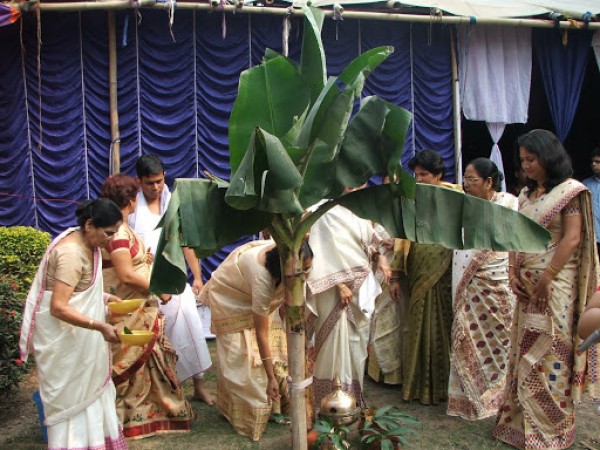
In the rich tapestry of cultural diversity, marriage rituals often serve as threads that weave communities together. One such fascinating tradition that adds vibrancy to the sacred institution of marriage is the crafting of bamboo peacocks and the ritual of tamarind ghotai. Let's delve into the significance of these customs as explained by the venerable Pandit.
Marriage, an artful journey, finds expression in the creation of bamboo peacocks. These delicate yet resilient creations symbolize the intricate artistry that forms the foundation of a marital bond.
Just as the peacock gracefully fans its feathers, the bamboo peacock embodies the elegance and grace expected in the union of two souls. It becomes a tangible reminder of the beauty inherent in marriage.
Crafted from bamboo, a simple yet robust material, the peacock signifies the strength found in simplicity. It represents the resilience required to navigate the complexities of married life.
Tamarind ghotai, a tradition involving tamarind, unfolds a tale of contrasting flavors. The sourness of tamarind mirrors life's challenges, while the accompanying sweetness symbolizes the joy derived from overcoming obstacles together.
Sharing the tamarind ghotai emphasizes the unity in experiencing both the sour and sweet facets of life. It serves as a gentle reminder that marriage encompasses a spectrum of emotions and experiences.
According to the Pandit, the tamarind ghotai ritual signifies the acceptance of life's flavors by the couple. The sourness reflects trials, and the sweetness embodies the shared happiness that comes from facing challenges hand in hand.
The Pandit, a revered custodian of traditions, plays a pivotal role in elucidating the deeper meanings behind rituals. Through his guidance, the significance of bamboo peacocks and tamarind ghotai becomes a profound exploration.
In a conversation with the Pandit, he highlights how these customs are not mere rituals but carry profound symbolism. The bamboo peacock, for instance, represents the endurance needed in a marital journey, while tamarind ghotai showcases the couple's resilience and ability to find sweetness in every challenge.
The Pandit elucidates that these traditions are not just rituals but serve as teaching tools. They impart wisdom, teaching couples the art of balance, resilience, and the beauty of finding joy in the journey together.
Marriage traditions, like layers of a cultural onion, reveal deeper meanings when peeled. Bamboo peacocks and tamarind ghotai are no exception, each layer unraveling a facet of the complex yet beautiful institution of marriage.
These traditions go beyond individual marriages; they bind communities together through shared values and practices. The crafting of bamboo peacocks becomes a communal art, and the sharing of tamarind ghotai fosters a sense of togetherness.
Every ritual, as explained by the Pandit, speaks a symbolic language. The bamboo peacock whispers of strength, grace, and simplicity, while the tamarind ghotai communicates the essence of shared experiences, resilience, and the fusion of diverse flavors in life.
In a world that embraces diversity, marriage traditions stand as living testaments to the myriad ways cultures express love, commitment, and resilience. Bamboo peacocks and tamarind ghotai add their unique strokes to this vibrant canvas.
As the Pandit concludes, these traditions are not just a connection to the past but vessels of wisdom passed down through generations. They remind couples that marriage is an art to be crafted, a journey to be navigated, and a tapestry to be woven with love and resilience.
Marriage, enriched by traditions, extends beyond customs. It is a shared journey where couples, like bamboo peacocks, navigate the complexities with grace and, like tamarind ghotai, savor the diverse flavors of life together.
Cyclone Michaung Weakens into Depression, Triggers Heavy Rainfall in Telangana
Govt Shuts Down Over 100 Websites Involved in Illegal Investments and Job Scams